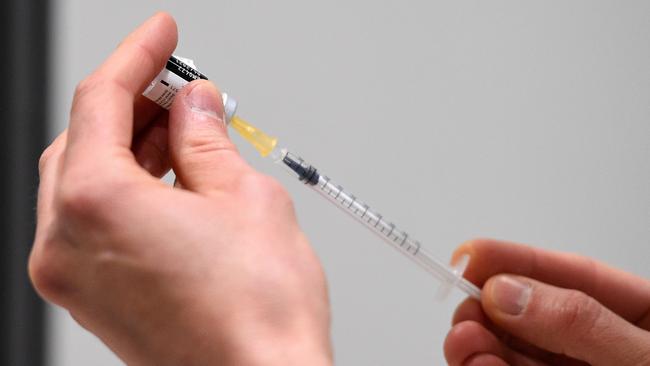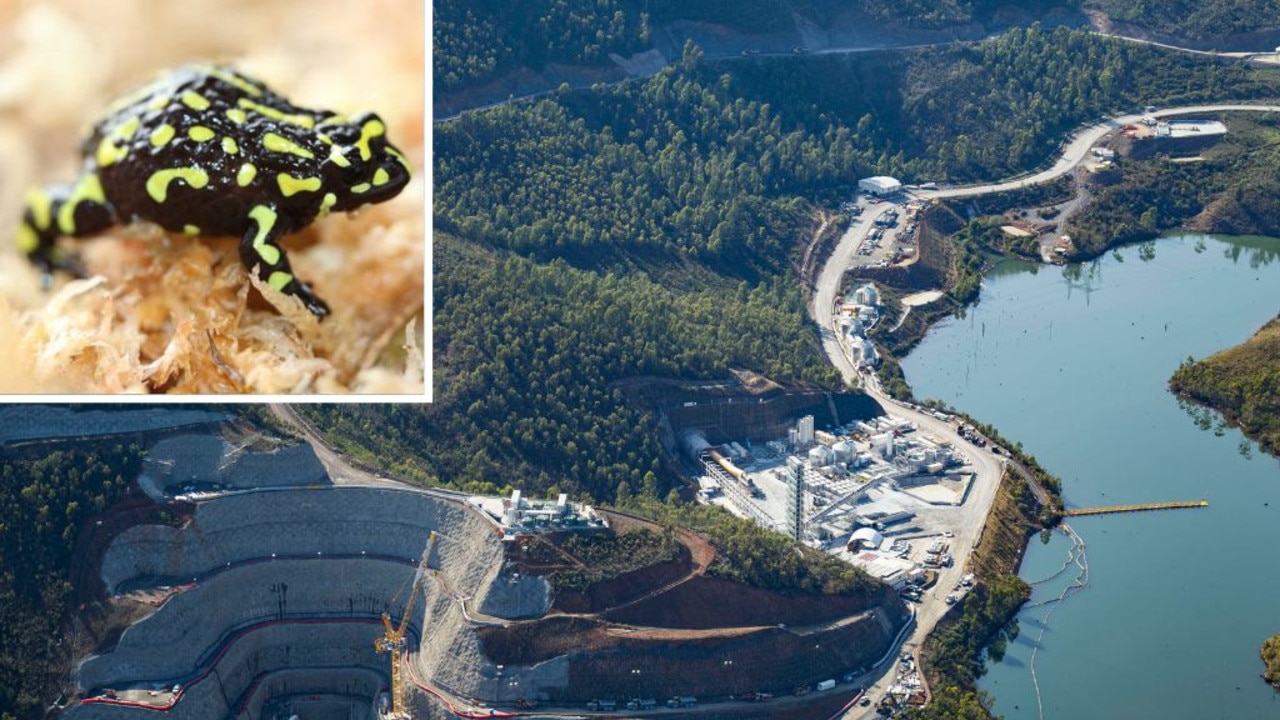Access to Pfizer coronavirus vaccine ‘limited’
Australia is unable to secure more doses of the highly effective Pfizer vaccine but reliance on the AstraZeneca jab does not mean our vaccine strategy is flawed, health chiefs say.

Australia is unable to secure more doses of the highly effective Pfizer vaccine but reliance on the alternative AstraZeneca jab does not mean the nation’s vaccine strategy is flawed, health chiefs say.
The commonwealth’s top health advisers have defended their vaccine strategy, which involves widely administering the AstraZeneca vaccine to protect Australians from coronavirus disease, saying the jabs would be highly effective in preventing illness and would “save lives”.
Yet doctors continued to question why other administrations had been able to secure more doses of the Pfizer vaccine while Australia had not. Pfizer’s vaccine has reported an efficacy rate of 94 per cent in clinical trials, compared with an average efficacy of 70 per cent for the AstraZeneca vaccine. The EU managed to double its order of Pfizer vaccines in a deal struck in early January.
The commonwealth’s Chief Health Officer, Paul Kelly, on Wednesday said Australia was in “virtually constant discussion” with Pfizer but was not planning to increase its order of 10 million doses of the Pfizer jab being supplied in line with a pre-purchase agreement negotiated last year.
“If there were more doses available to us, then we would look into whether that was a feasible option … to get more,” he said. “So far, that’s not the case. AstraZeneca has its place. It will save lives and we have plenty here to give two doses to the entire population of Australia during 2021.”
The government on Wednesday moved to reassure the public that its vaccine strategy was sound, rejecting concerns Australia would not be able to achieve herd immunity.
The chair of the Australian Technical Advisory Group on Immunisation, Allen Cheng, said it wasn’t clear that any coronavirus vaccine would induce herd immunity. “Can COVID vaccines give us herd immunity? We currently don’t know,” Professor Cheng said in a Twitter thread.
“The Pfizer vaccine looks about as good as it gets — it appears to reduce symptomatic infection by about 95 per cent, even if we don’t know yet whether it reduces asymptomatic infection.
“But if we only used this vaccine, we could vaccinate only five million people over the next year.
“This wouldn’t achieve herd immunity even if it completely prevented infection and infectiousness (which we don’t know).
“The AZ vaccine may not be as good (it reduces infection by about 62-70 per cent) but this can be rolled out more quickly. Even if doesn’t protect against transmission, it does protect against disease and that’s a benefit.”
The Australasian Society for Infectious Diseases, the Australasian College for Infection Prevention and Control and the Public Health Association of Australia issued a combined statement on Wednesday backing Australia’s vaccine strategy.
The statement came after the president of the Australian and New Zealand Society for Immunology, Stephen Turner, said that on current trial evidence, the AstraZeneca vaccine should not be widely rolled out.
The joint statement stressed that Australia had struck pre-purchase agreements before any phase 3 efficacy data was available for vaccines being developed in order to ensure it had a diverse portfolio.
“The Pfizer vaccine has since shown >90 per cent efficacy in phase 3 trials while the Astra Zeneca vaccine is ~62 per cent effective in the recommended two-dose schedule,” the health groups said. “It must be remembered that these findings are preliminary and far exceed the bar for licensure of 50 per cent set by the international regulators.”
One immunologist said if the bulk of Australians received the AstraZeneca jab in 2021, they could be given a more efficacious mRNA vaccine later.




To join the conversation, please log in. Don't have an account? Register
Join the conversation, you are commenting as Logout